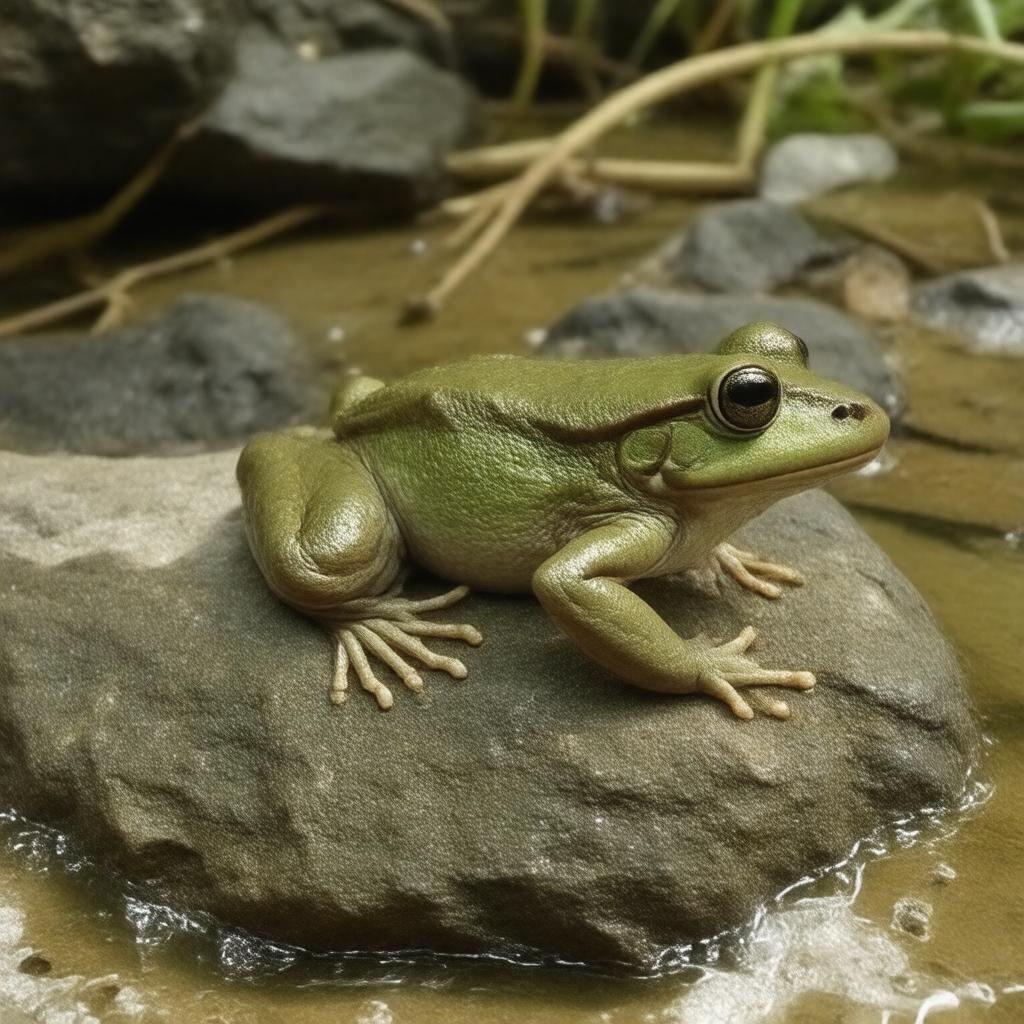Prompt
"Generate an image of a realistic African clawed frog (Xenopus laevis) in its natural habitat, a freshwater pond with aquatic plants and muddy bottom, under warm sunlight, with the frog's smooth olive green skin and webbed feet visible, sitting on a rock with its claws outstretched, nocturnal and alert, with a subtle hint of its mildly toxic skin secretions."

